Mahsa Ghazvini Nejad
Tiny Noise-Robust Voice Activity Detector for Voice Assistants
Jul 29, 2025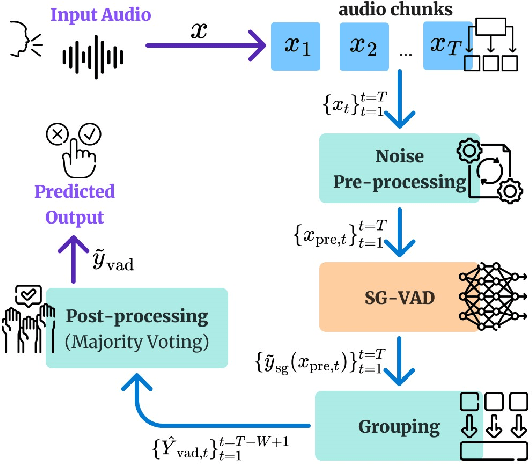
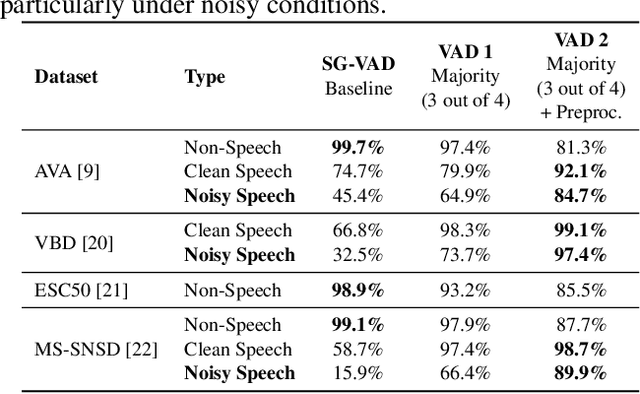
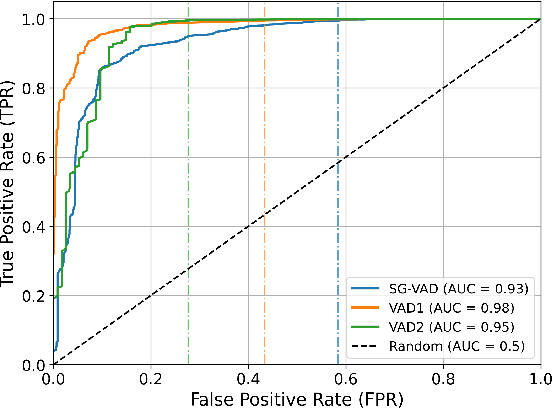
Abstract:Voice Activity Detection (VAD) in the presence of background noise remains a challenging problem in speech processing. Accurate VAD is essential in automatic speech recognition, voice-to-text, conversational agents, etc, where noise can severely degrade the performance. A modern application includes the voice assistant, specially mounted on Artificial Intelligence of Things (AIoT) devices such as cell phones, smart glasses, earbuds, etc, where the voice signal includes background noise. Therefore, VAD modules must remain light-weight due to their practical on-device limitation. The existing models often struggle with low signal-to-noise ratios across diverse acoustic environments. A simple VAD often detects human voice in a clean environment, but struggles to detect the human voice in noisy conditions. We propose a noise-robust VAD that comprises a light-weight VAD, with data pre-processing and post-processing added modules to handle the background noise. This approach significantly enhances the VAD accuracy in noisy environments and requires neither a larger model, nor fine-tuning. Experimental results demonstrate that our approach achieves a notable improvement compared to baselines, particularly in environments with high background noise interference. This modified VAD additionally improving clean speech detection.
* Hamed Jafarzadeh Asl and Mahsa Ghazvini Nejad contributed equally to this work
Mitigating Outlier Activations in Low-Precision Fine-Tuning of Language Models
Dec 15, 2023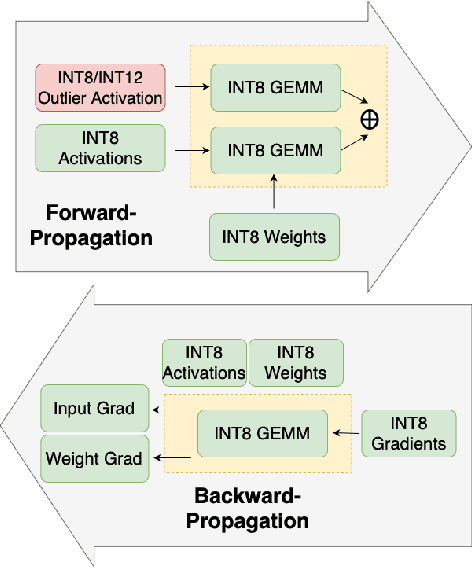


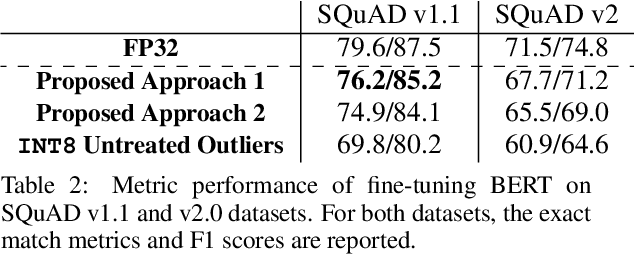
Abstract:Low-precision fine-tuning of language models has gained prominence as a cost-effective and energy-efficient approach to deploying large-scale models in various applications. However, this approach is susceptible to the existence of outlier values in activation. The outlier values in the activation can negatively affect the performance of fine-tuning language models in the low-precision regime since they affect the scaling factor and thus make representing smaller values harder. This paper investigates techniques for mitigating outlier activation in low-precision integer fine-tuning of the language models. Our proposed novel approach enables us to represent the outlier activation values in 8-bit integers instead of floating-point (FP16) values. The benefit of using integers for outlier values is that it enables us to use operator tiling to avoid performing 16-bit integer matrix multiplication to address this problem effectively. We provide theoretical analysis and supporting experiments to demonstrate the effectiveness of our approach in improving the robustness and performance of low-precision fine-tuned language models.
 Add to Chrome
Add to Chrome Add to Firefox
Add to Firefox Add to Edge
Add to Edge